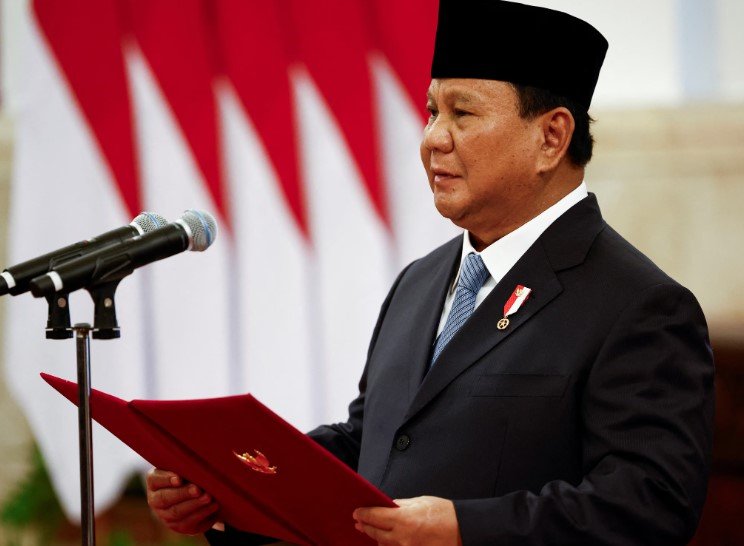A high-profile meeting in Jeddah signals a reset in Gulf-ASEAN diplomacy as Saudi Arabia and Indonesia double down on economic, defense, and Hajj coordination.
Saudi Arabia and Indonesia put pen to paper on a deeper bilateral roadmap this week, with Crown Prince Mohammed bin Salman and newly elected Indonesian President Prabowo Subianto chairing the inaugural session of the Saudi-Indonesian Supreme Coordination Council. The talks, held at Al-Salam Palace in Jeddah, were rich with symbolism and steeped in strategy — and may prove pivotal for two of the Muslim world’s biggest political players.
For Riyadh, this was more than a routine diplomatic handshake. For Jakarta, it was a signal of fresh leadership intent. Both sides made clear that they’re not just ticking boxes — they’re trying to rewrite their long-standing bilateral playbook.
First Supreme Coordination Council Gets to Work
The meeting marked a milestone moment: the first session of the Saudi-Indonesian Supreme Coordination Council, a new framework to align the two nations on policy, investment, and security. It’s not window dressing. The structure is modeled after similar high-level bilateral councils Saudi Arabia has set up with the UAE, China, and India.
Crown Prince Mohammed bin Salman welcomed President Subianto with full honors and sharp rhetoric about mutual interests. The Indonesian president, in return, called the Kingdom “a key strategic partner for Indonesia’s new chapter.”
Three main themes emerged from the meeting — defense alignment, Hajj logistics, and economic diversification.
In a council agenda that lasted several hours, ministers from both countries tackled:
-
Joint infrastructure and logistics investments
-
Hajj and Umrah pilgrim mobility
-
Cooperation in food security and pharmaceuticals
-
Emerging defense and maritime agreements
It wasn’t just talk. The minutes of the meeting were signed by both leaders, signaling active follow-through, not passive intention.

Diplomatic Theater, With Real Policy Teeth
The optics of the visit mattered — the Al-Salam Palace ceremony, flanked by senior Saudi ministers, broadcast a message of serious intent. This wasn’t just another Gulf handshake for Jakarta.
The guest list at the meeting read like a who’s who of Saudi state power. Defense Minister Prince Khalid bin Salman, Interior Minister Prince Abdulaziz bin Saud, and Foreign Minister Prince Faisal bin Farhan all took part. Also seated at the table were top economic stewards, including Finance Minister Mohammed Al-Jadaan and Commerce Minister Dr. Majed Al-Qasabi.
That kind of lineup isn’t routine for a visiting head of state. It’s a signal — especially given Prabowo Subianto’s history as a defense chief and his regional ambitions.
For Saudi Arabia, Indonesia is more than Southeast Asia’s largest Muslim-majority country. It’s a swing state in the Islamic world and an anchor of ASEAN, a bloc Riyadh has been courting with increasing urgency since 2022.
One official close to the Saudi delegation, who spoke on background, said: “The Saudis view Prabowo’s presidency as an opportunity to sync policy with Jakarta on long-term defense and security goals, especially in the Red Sea and the South China Sea.”
New Momentum After Regional Flashpoints
Timing plays its own role. The meeting comes amid simmering tensions across the Gulf and Middle East, with Saudi diplomacy trying to expand its influence outside the traditional US-Europe axis.
Indonesia, too, is recalibrating its foreign policy. After years of hedging between China and the West, Jakarta seems keen to project new influence, especially under Prabowo, who is seen as more assertive than his predecessor Joko Widodo.
And the Saudi-Indonesian dynamic matters beyond economics.
Prabowo’s administration is inheriting delicate Hajj coordination issues, particularly after last year’s bottlenecks and complaints over Indonesian pilgrim quotas. Riyadh, for its part, is aggressively reforming its religious tourism sector under Vision 2030 — so streamlining pilgrim logistics is now a key KPI.
Still, it wasn’t just religious affairs that dominated the talks.
At the core of the council’s work is economic cooperation. Indonesia wants a bigger piece of the Gulf’s sovereign investment pie — and Saudi Arabia wants to expand its footprint in Southeast Asia’s growing halal economy.
Economic Tables and Diplomatic Timelines
While full investment figures weren’t publicly disclosed, Saudi and Indonesian officials hinted that multiple joint initiatives are in the pipeline, spanning energy, digital infrastructure, and agriculture.
Here’s a quick snapshot of trade and investment ties as of 2024:
| Sector | Saudi Investment in Indonesia | Indonesian Exports to Saudi Arabia |
|---|---|---|
| Oil & Petrochemicals | $1.9 billion | $480 million |
| Infrastructure (roads, ports) | $650 million | $110 million |
| Agriculture & Halal Goods | $350 million | $210 million |
| Pharmaceuticals & Biotech | $125 million | $90 million |
While the numbers are promising, both sides know they’re just scratching the surface. Saudi Arabia wants to localize more tech and defense manufacturing. Indonesia wants long-term FDI and fewer delays on religious tourism visas.
“There’s no reason this can’t double in five years,” said an Indonesian trade official who attended the council’s economic session.
Prabowo’s Warm Welcome and Soft Power Push
Even before the formal talks began, it was clear this visit had weight.
The ceremonial welcome at Al-Salam Palace included traditional Saudi pomp — complete with honor guards and cultural pageantry. The Crown Prince referred to Subianto as a “brother,” not just a head of state.
The tone struck by both leaders was warm, even familial. Some Saudi analysts saw echoes of past visits by leaders from Malaysia and Egypt, but with added urgency this time.
There was also soft power at play. Saudi Arabia is keen to leverage its influence among Muslim-majority countries to build a geopolitical middle corridor — a policy that sees allies in the East, not just the West.
For Indonesia, with its 270 million people and rising global footprint, the partnership offers both economic leverage and international legitimacy under a new government.
One thing was clear by the end of the council’s session: neither Riyadh nor Jakarta is interested in business as usual anymore.
